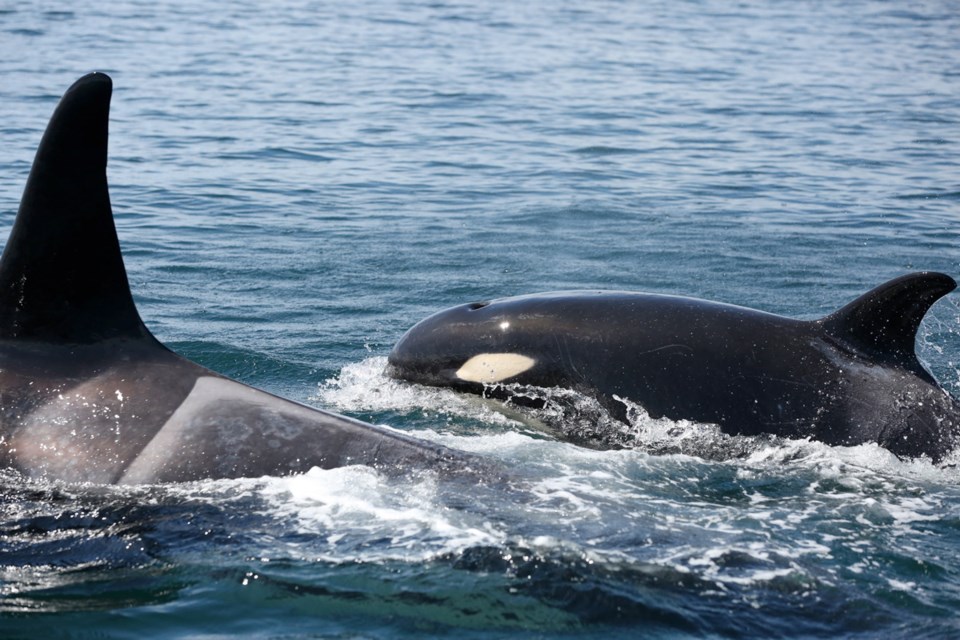The Class of 2015 — four orcas born since late December — is thriving in the waters of B.C. and Washington state.
All are part of the southern resident orca population, which includes the J, K and L pods. Southern resident orcas are listed as endangered, with pollution and lack of food among the contributing factors.
“We hadn’t had a successful birth in about three years,” said Michael Harris, executive director of the Pacific Whale Watch Association. “You’ve got four whales now within a population of 81 [southern residents] that are under a year old.
“I think we’re all cautiously optimistic.”
Members of the association, which represents 34 whale-watching operators in the United States and Canada, came up with the Class of 2015 label, he said.
“It just kind of stuck.”
The eldest calf and lone female, J50, was born Dec. 30, 2014. J51 and L121 were born in February and J52 in March. Names are derived from their pods.
Harris said baby orcas in the wild have a 50 per cent mortality rate in their first year “but we’ve now got four that are into the second half of their first year.”
All four “are just growing like weeds” — and starting to assert their personalities more, Harris said, with J50 the most “rambunctious” of the group.
He attributed the bump in births to a number of breeding-age females “doing the heavy lifting right now.” That has included a 43-year-old, the oldest southern resident orca mother known, and a 10-year-old — orcas don’t usually start to reproduce until they are 13 or 14.
“We had a couple of surprises,” Harris said. “And then in L-pod we have females that are coming into reproductive age.
“It’s an incredibly good year.”
Photos of the baby orcas indicate they are in good health, he said.
“I’ve seen baby pictures for 30 years and these animals are doing really, really well. They’re thriving, they’re plump.”



